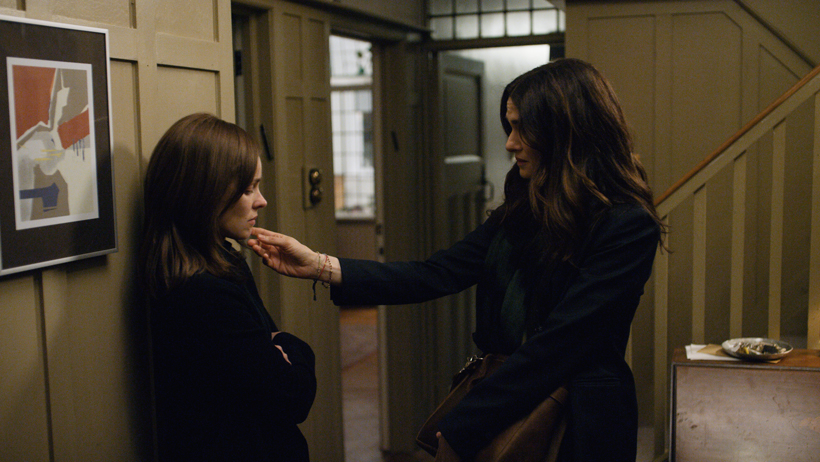Inner torment does not always play well on the big screen, but up-and-coming Chilean director Sebastian Lelio has displayed a gift for working with actors to convey internal conflict and deep emotion in nuanced but powerful ways. His collaboration with a trans woman with no prior acting exprience, Daniela Vega, helped earn his last film, A Fantastic Woman (Una Mujer Fantastica), the Oscar for Best Foreign Language Film back in March. In his latest, he gets the formidable duo of Rachel Weisz and Rachel McAdams.
A Fantastic Woman depicted -- in subtle and implicit ways -- the marginalization of a trans woman left to grieve in isolation after the death of her lover. Elements of that dynamic appear in Disobedience, based on the novel by Naomi Alderman, about a woman name Ronit (Weisz) returning to the English Orthodox Jewish community in which she was raised (and which she jilted) after the death of her father, the community's beloved rav (rabbi).
The film begins with a drash about free will, explaining how angels are creatures only capable of doing God's bidding and animals are slave to their instincts, yet humans are unique because they have choice. The table is neatly set for the drama to unfold as Ronit, who has made plenty of choices in her life, chief among them leaving her insular Orthodox upbringing, reckons with the feelings of being back.
Yet Ronit isn't even the most interesting character in the film. That title belongs to McAdams' Esti, a frum (observant) woman who was friends with Ronit growing up and is now married to their mutual friend Dovid (Alessandro Nivola), a respected up-and-coming rabbi in the community. At first there is general discomfort between the two women, but once they are together alone for the first time (in Ronit's old house), the tension is revealed to be rooted in something deeper. Ronit's return is a catalyst for what has clearly been eating at Esti forever despite her decision to lead an observant life.

The dynamic between Ronit and Esti takes control of the film from there. As much as the Orthodox Jewish context is respectfully handled and honestly portrayed, Lelio and co-writer Rebecca Lenkiewicz (who wrote a different Oscar-winning foreign film, the Holocaust drama "Ida") are much more interested in the deep, emotional human connection between these women than the Jewish components of their stories. Esti's struggle is not about how she feels about Judaism, but whether she continues in the path expected of her -- that she was born into -- or will allow herself to be free of it.
In this way, Orthodox Judaism is a lifestyle that provided the perfect container for exploring more universal ideas of expectations and belonging. So Jewish viewers looking for a certain richness of Jewish content might be a little disappointed by the film's lack of intellectual stimulation. The story is so much more about desire and choices and what happens when those two things are in conflict with one another. More simply, it's a feeler's movie, not a thinker's movie. If you're not sure which way you lean, the film's unapologetically sensual moments will be your litmus test.
The film has two great parts for women. Weisz is always interesting to watch, but it's been awhile since we've truly seen McAdams in a dramatically juicy role. She's the best part of the film. Although we can all relate when the other women at the Shabbos table pushily explain to Ronit why it's not good for her to be single at her age, Esti is the one who until now has been dutifully and willfully been playing her part and must decide if she's willing to risk everything she's been her whole life.
Lelio has a promising career ahead of him. Between Disobedience and A Fantastic Woman, the latter is the better film because of its subtlety and vulnerable simplicity, but together they are prime examples of how one can tell a story without letting traditional plot and context get in the way. All you need is a set of circumstances that create a powerful vortex of emotion and talent capable of capturing it in the most human way possible.
"Disobedience" opens in Chicago on Friday, May 4, at Landmark Century Centre Cinema, 2828 N. Clark St.


.jpg?n=6414)

.jpg)



.jpg)



